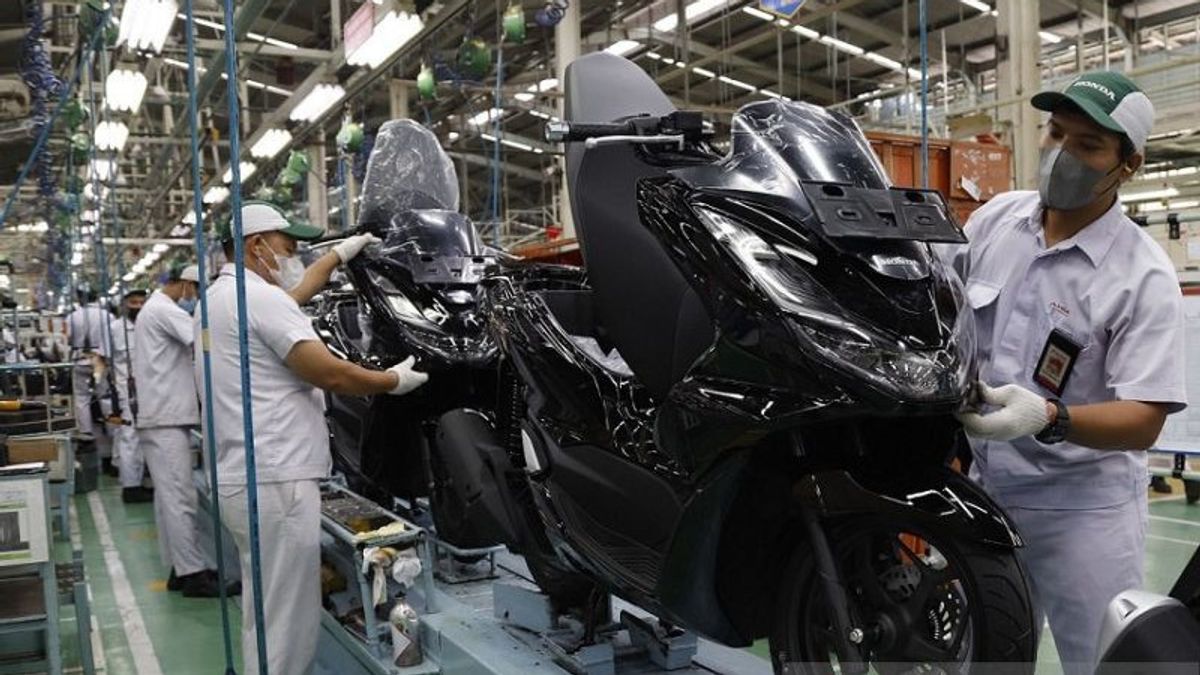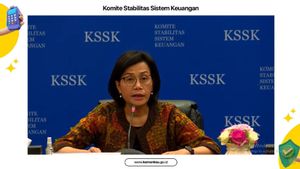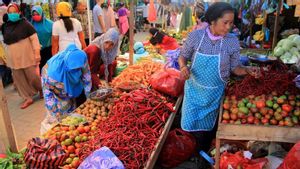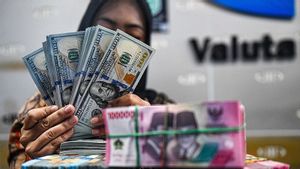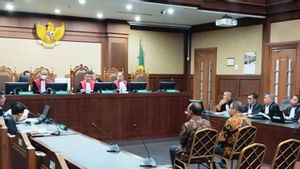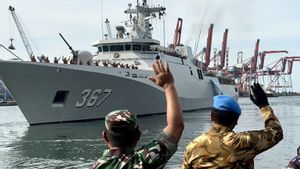JAKARTA – The government through the Ministry of Finance (Kemenkeu) positively welcomed the improvement in the manufacturing Purchasing Managers Index (PMI) from 50.2 in June to 51.3 in the July period.
Head of the Fiscal Policy Agency (BKF) of the Ministry of Finance Febrio Kacaribu said the strengthening trend was also experienced by several countries such as Malaysia (50.6) and Thailand (52.4). Meanwhile, some experiencing a slowdown include Japan (52.1), Vietnam (51.2), and the Philippines (50.8).
Meanwhile, a number of developed countries such as South Korea (49.8) and Taiwan (44.6) are in the contraction zone or levels below 50.
"The continued domestic recovery is a major factor in Indonesia's positive manufacturing performance," he said in a written statement on Tuesday, August 2.
According to Febrio, another factor that supports Indonesia's improvement is the control of the COVID-19 pandemic, which is getting better as the full vaccination rate continues to accelerate.
“Intervention through the National Economic Recovery Program (PEN) is expected to be able to continue to maintain this recovery momentum. In addition, price pressures, especially world non-energy prices which are starting to gradually subside, are also expected to continue to be a positive factor in the future," he said.
Febrio added that the trend of manufacturing production capacity has consistently increased in the last two quarters and is starting to approach pre-pandemic levels.
“This production occurs in line with strong domestic consumer demand. Demand from the consumption side will continue to be maintained so that this strong manufacturing performance can continue to support the recovery," he said.
SEE ALSO:
In addition to the dynamics of the global economy, domestic price stability will continue to be a concern in line with the rising inflation trend in July 2022 which reached 4.94 percent year in year (yoy). He said Indonesia's overall inflation rate was still lower than other countries such as the European Union at 8.9 percent.
"Although it increased slightly, core inflation was still maintained at the level of 2.86 percent," he said.
Furthermore, Sri Mulyani's subordinate explained that the still high world energy prices prompted the adjustment of several domestic prices and an increase in subsidies and electricity tariffs.
“Global dynamics are still the main challenge for price stability in the country. However, the APBN will continue to be optimized as a shock absorber. The movement of administered prices is relatively controlled compared to other countries that do not use the energy subsidy mechanism," he said.
Febrio also said that food prices are expected to be more stable as weather conditions improve in the future. The movement of horticultural commodity prices has shown a sloping trend in the last two weeks in the July period.
“The government in controlling inflation will optimize key policies, especially maintaining people's purchasing power through various subsidies and social protection. In addition, PEN will also continue to be encouraged to control the pandemic and restore the economy," concluded the Head of Fiscal Policy Agency (BKF) Febrio Kacaribu.
The English, Chinese, Japanese, Arabic, and French versions are automatically generated by the AI. So there may still be inaccuracies in translating, please always see Indonesian as our main language. (system supported by DigitalSiber.id)
